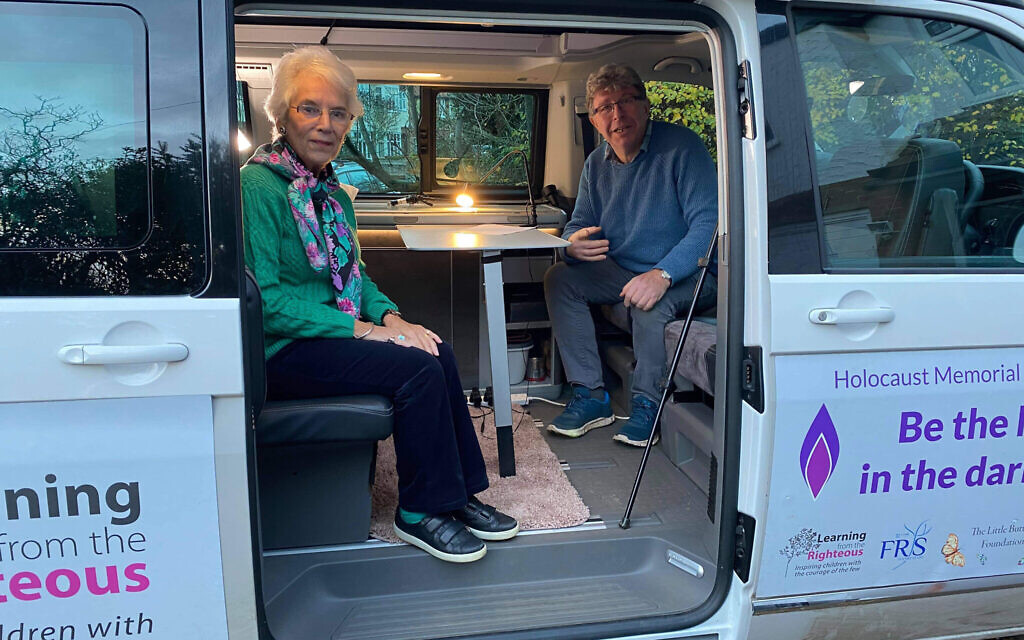This customised van helps Shoah survivors record their stories in the pandemic
After the pandemic put a screeching halt to first-hand survivor testimony, educator Anthony Lishak retro-fitted an RV, turning into a coronavirus-proof mobile studio for survivors
As one of the youngest Holocaust survivors, Eva Clarke has spent years telling the story of how her mother, weighing just 68 pounds, gave birth to her inside a concentration camp just a month before it was liberated.
But this spring, as COVID-19 shut down public life, Clarke’s visits to schools and community centres “came to a screeching halt, indefinitely,” she recalls.
Earlier this month, she got a fresh audience when an RV pulled into her driveway in Cambridge.
Get The Jewish News Daily Edition by email and never miss our top stories Free Sign Up
Inside was Antony Lishak and a retrofitted interior that would allow her to tell her story safely, and for posterity, during the pandemic.
Lishak has spent years teaching about the Holocaust to young audiences using the real-life testimonies of Holocaust survivors and rescuers. Even before the pandemic, time was not on the educator’s side.
First-person accounts, delivered live, have the strongest effect on the students Lishak is trying to reach, he said. But survivors are dying and the ones still alive find it more difficult year each to deliver the talks that he organises for them at schools.
The pandemic put these interactions on pause, costing him time that he “couldn’t afford to lose,” Lishak said.
Finally, months into the pandemic, Lishak came up with a way around the impasse.
In recent weeks, he has been traveling across the United Kingdom in an RV that he turned into a coronavirus-proof mobile studio for Holocaust survivors whose testimonies he films right outside their homes.
“I can’t tell you what it looks like on the film, but it’s an ingenious idea,” said Lili Pohlmann, a 90-year-old Jewish woman from London whom Lishak also interviewed this month.
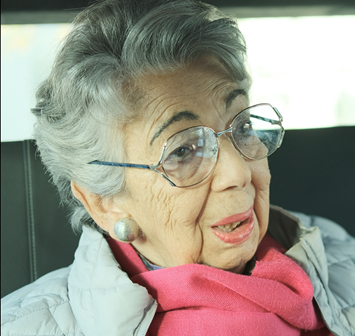
Pohlman survived the Holocaust in Lviv, in what is now Ukraine, thanks to the bravery of Andrey Sheptytsky, a senior priest, and Imgard Wieth, a German civil servant. Pohlmann and her mother were the only members of her nuclear family who survived.
“In these circumstances, of course, I couldn’t have done it now at all,” she said about the testimony she gave recently in the mobile studio. “I unfortunately can’t go out. So I’m at home and I can’t have anybody come in.”
“It’s outside the box, but it means the work can go on,” Lishak told the Jewish Telegraphic Agency earlier this month about the studio as he prepared to drive to interview Clarke inside his rented Volkswagen California Ocean camper, which he had fitted with a Perspex divider to keep the interviewees safe.
The van has heating, a pop-up coffee table for the witnesses, revolving front seats and enough space for Lishak to comfortably record with a wide-angle lens, he said.
Lishak, CEO of the Learning from the Righteous educational nonprofit, needs a portable studio because videoconferencing is logistically difficult for many elderly witnesses.
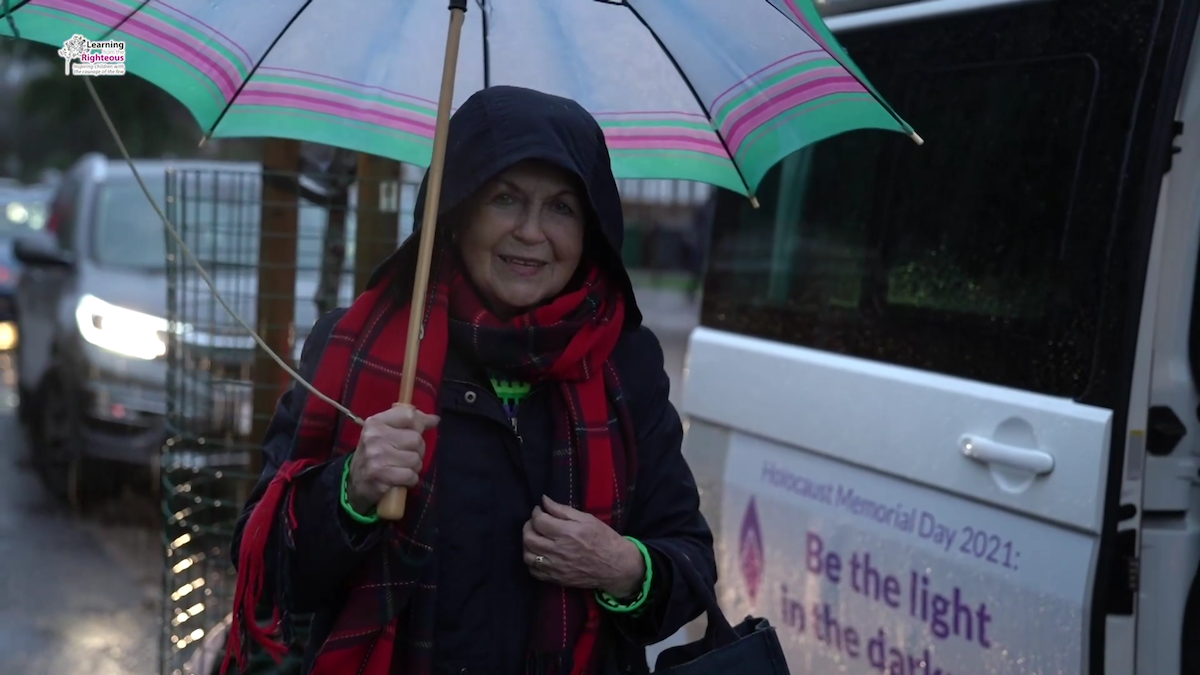
Some chroniclers of the Holocaust, including the U.S. Holocaust Memorial Museum, have turned to videoconferencing to record interviews during the pandemic. But Lishak said in-person interviews are preferable.
“A live Zoom event is difficult to set up” for many survivors, he said. But the real problem is that the medium isn’t conducive to the content for the student audiences he aims to reach
An edited video testimony is a superior medium for “a generation who are used to TV-quality presentation,” he said.
In January, before of Holocaust Memorial Day, Finchley Reform Synagogue hosted Lishak’s interviews on its website, ensuring they will reach thousands of viewers.
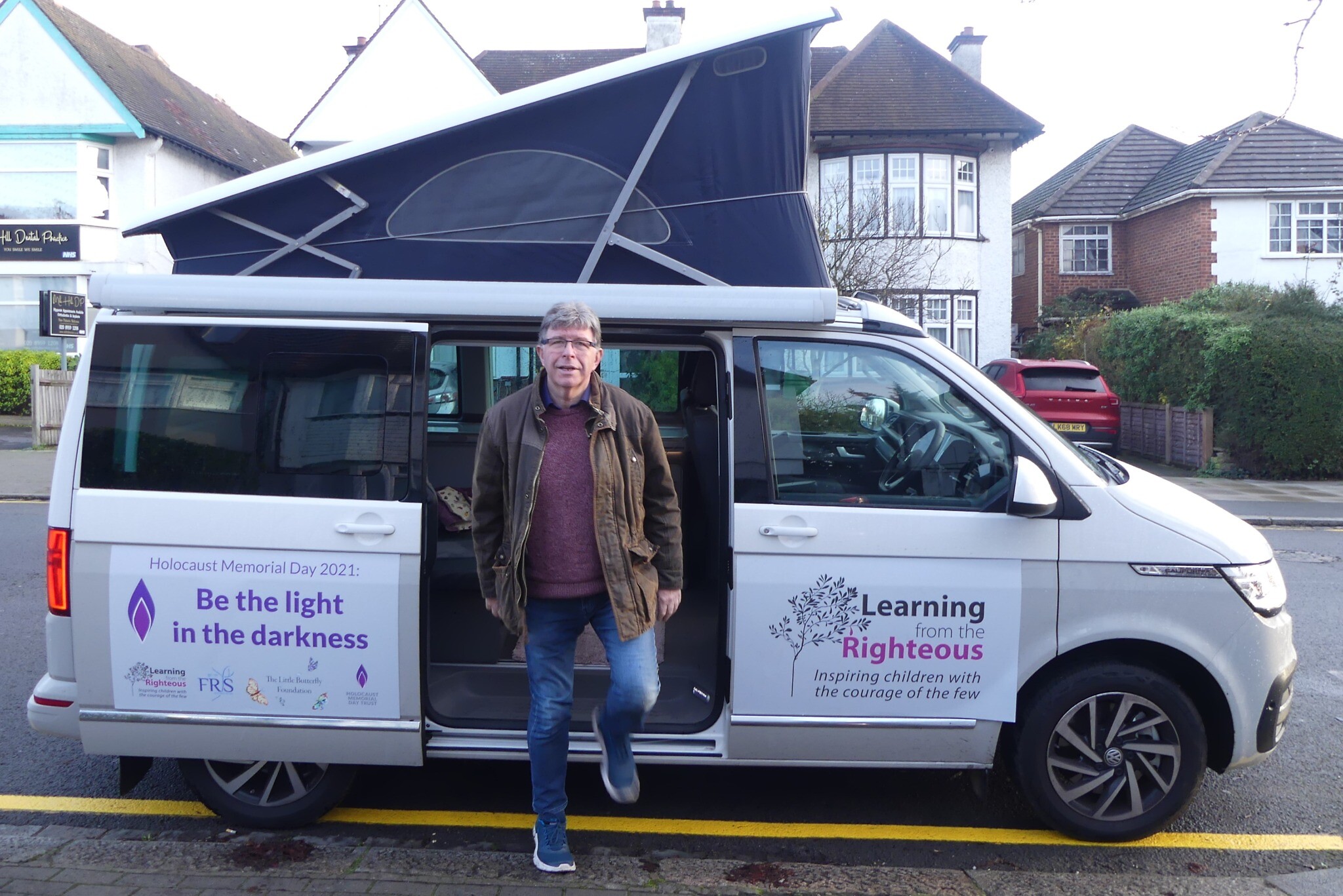
“You can record Zoom sessions, but I doubt people will sit down and watch them as they would a well-edited testimony video,” Lishak said.
Giving survivors a voice on International Holocaust Remembrance Day is a “duty,” he said. Its theme this year in the United Kingdom is “Be the Light in the Darkness.”
Clarke, a retired university administrator, is comfortable using videoconferencing software. But the interview she gave Lishak in her driveway in Cambridge on Dec. 14 was “much more intimate, which of course helps tell the story.”
Lishak said the intimacy that sets in during encounters with Holocaust survivors and high school students is “a crucial factor” in making them interested in the Holocaust. It made all the difference during his work at schools in impoverished neighbourhoods in Manchester, he said.
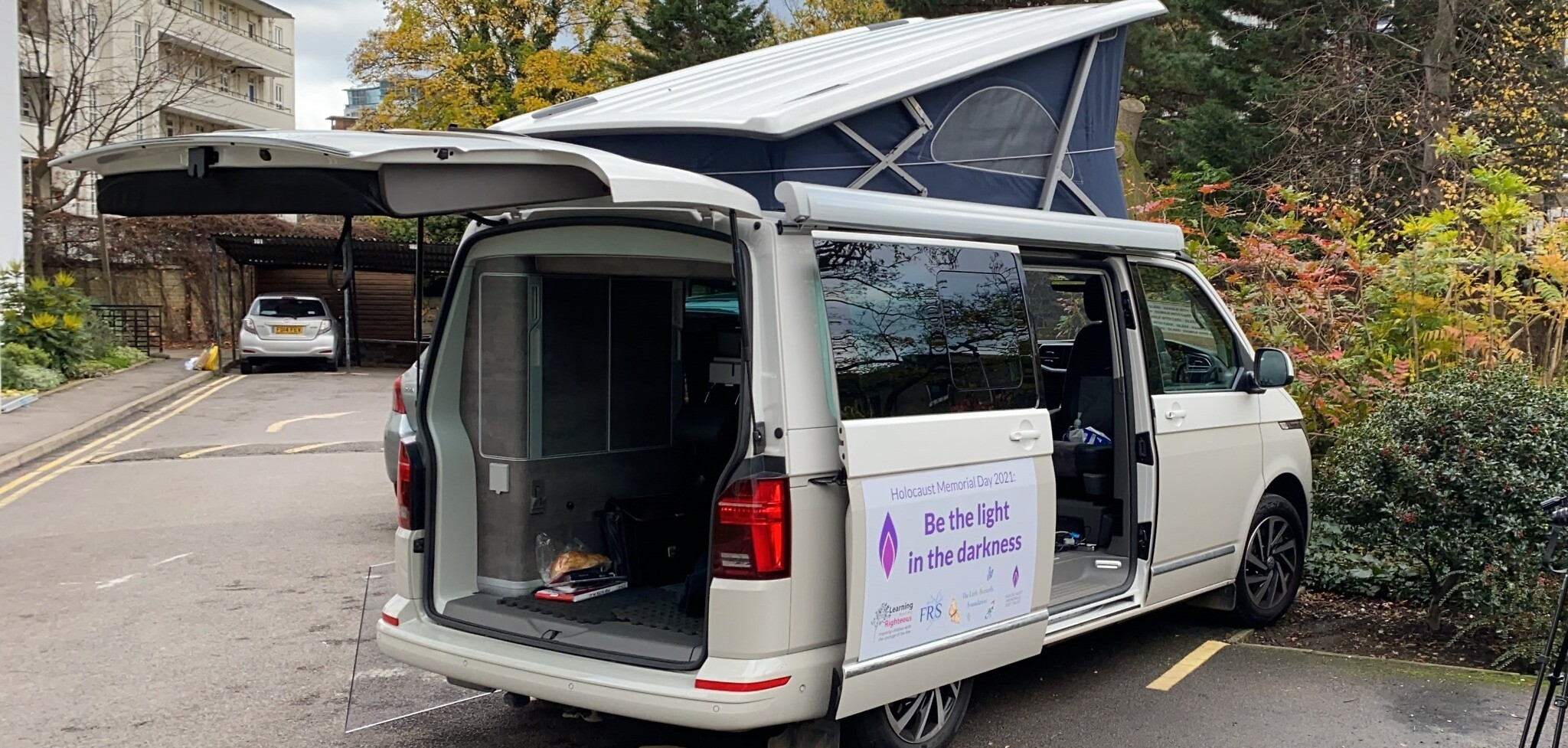
Recorded interviews will not be as powerful as real-life encounters but are more effective than “chaotic Zoom meetings,” Lishak said. “It’s the best option we have right now.”
In the future, he is planning to complement testimonial videos with a live video Q&A session. Lishak said he’s also looking into expanding the studio into a larger mobile classroom that can stage face-to-face encounters with survivors and take them to relevant memorial sites across the UK and Europe.
That way, he said, “the bus would drive up to the witness’ home instead of the other way around and visit a Holocaust heritage or memorial site during the same trip.”
Clarke, 75, has spent the past 15 years telling her story and that of her mother, Anka Kaudrova, who died in 2013. Clarke weighed just 1 1/2 pounds when she was born at the Mauthausen death camp in Austria, where the Nazis had killed some 90,000 people, just one week before its liberation by the U.S. Army.
“I find it extremely important to tell that story, which I’ve sort of taken on after my mother died,” Clarke said.
“I tell my family’s history out of a sense of commitment to her and to our society, to warn others of where racism can lead,” said Clarke, who has visited hundreds of schools across the United Kingdom. “It means so much to be able to carry on her work.”

Thank you for helping to make Jewish News the leading source of news and opinion for the UK Jewish community. Today we're asking for your invaluable help to continue putting our community first in everything we do.
For as little as £5 a month you can help sustain the vital work we do in celebrating and standing up for Jewish life in Britain.
Jewish News holds our community together and keeps us connected. Like a synagogue, it’s where people turn to feel part of something bigger. It also proudly shows the rest of Britain the vibrancy and rich culture of modern Jewish life.
You can make a quick and easy one-off or monthly contribution of £5, £10, £20 or any other sum you’re comfortable with.
100% of your donation will help us continue celebrating our community, in all its dynamic diversity...
Engaging
Being a community platform means so much more than producing a newspaper and website. One of our proudest roles is media partnering with our invaluable charities to amplify the outstanding work they do to help us all.
Celebrating
There’s no shortage of oys in the world but Jewish News takes every opportunity to celebrate the joys too, through projects like Night of Heroes, 40 Under 40 and other compelling countdowns that make the community kvell with pride.
Pioneering
In the first collaboration between media outlets from different faiths, Jewish News worked with British Muslim TV and Church Times to produce a list of young activists leading the way on interfaith understanding.
Campaigning
Royal Mail issued a stamp honouring Holocaust hero Sir Nicholas Winton after a Jewish News campaign attracted more than 100,000 backers. Jewish Newsalso produces special editions of the paper highlighting pressing issues including mental health and Holocaust remembrance.
Easy access
In an age when news is readily accessible, Jewish News provides high-quality content free online and offline, removing any financial barriers to connecting people.
Voice of our community to wider society
The Jewish News team regularly appears on TV, radio and on the pages of the national press to comment on stories about the Jewish community. Easy access to the paper on the streets of London also means Jewish News provides an invaluable window into the community for the country at large.
We hope you agree all this is worth preserving.
-
By Brigit Grant
-
By Laurent Vaughan - Senior Associate (Bishop & Sewell Solicitors)
-
By Laurent Vaughan - Senior Associate (Bishop & Sewell Solicitors)
-
By Laurent Vaughan - Senior Associate (Bishop & Sewell Solicitors)
-
By Laurent Vaughan - Senior Associate (Bishop & Sewell Solicitors)


